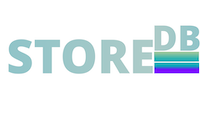
| STUDYID | STOREDB:STUDY1185 |
|---|---|
| CREATEDON | 2023-12-04 12:34:50 |
| MODIFIEDON | 2024-01-11 09:53:01 |
| UPLOADER | Nadja Zeleznik |
| DOI | DOI:10.20348/STOREDB/1185 |
| STUDY NAME | ||
|---|---|---|
| Scenarios for climate neutral sector based on nuclear new technologies and variable renewables | ||
| STUDY STATUS | ||
| Published: Open access to everyone | ||
| DATA SHARING POLICY | ||
| CC-Attribution Non-Commercial No Derivatives | ||
| STUDY TYPE | ||
| 09-19-00 - Policy development study | ||
| PRINCIPAL INVESTIGATOR | ||
| Marin Constantin | ||
| BIOLOGICAL SAMPLE AVAILABLE | ||
| No | ||
| ECOLOGICAL DATA | ||
| No | ||
| STUDY DESCRIPTION | ||
| The ECOSENS project includes an assessment of the sustainability performance of the nuclear power for
the entire life cycle considering the current development of nuclear technologies together with the investigation of the evolutions of the energy market in the transition toward climate neutrality in order to discuss the role of the nuclear power in the medium and long term. In this deliverable, a set of scenarios for nuclear power development in the European Union at the horizon of 2050 was developed, based on the previous ECOSENS investigation of energy demand, existing policies for decarbonization, and impact of societal and technological changes on the future energy market. The key steps of the methodology for scenarios building are: identification of key drivers, defining the alternative scenarios, checking the plausibility and consistency, narrative construction. After that an iterative process involving stakeholders and decision-makers is necessary to strengthen the scenarios, followed by testing the scenarios, and finally their use in the decision-making process. This process will be achieved by the exploitation of results and will be based on the transfer of the results to the potential beneficiaries such as the European and national decision-makers. After an introduction briefly recalling the present status and historical development of nuclear power especially in the European Union, the second section is devoted to the methodological considerations for scenario building. A summarized presentation of Net Zero Emissions energy scenario is included to understand the elements describing the normative elements of the visions and policies. Some existing energy scenarios for the Europe Union development are also discussed. The third section presents the approach used to handle the complexity resulting from the long-term perspective of the scenarios and the multitude of uncertainties, for example those related to evolutions in key parameters, and in technological and societal development. For the twelve established key influencing factors, the first simplification was to reduce to six the number of factors having a broad spectrum of variation. Six factors (decarbonization, grid modernization, interconnectivity, resilience and adaptation, global cooperation, and carbon capture) were considered with evolutions described by the current vision of the climate neutrality or those normative scenarios derived from net zero emissions. The broad variation of the other six factors (renewable energy, electrification, energy storage, energy efficiency, behavioral changes, and technological assessment) was considered and detailed in three scenarios (high, medium, and low). By considering the most relevant cases of the variation of the previous key factors, a set of four scenarios for nuclear power development is developed and presented in the fourth section. The scenarios are: Nuclear Status Quo (unchanged pace of nuclear development, not much influenced by an acceleration of renewables), Nuclear Phase-Out (no new nuclear project, progressive phase-out), Nuclear and Renewables Synergy (nuclear to support accelerated implementation of renewables), and Nuclear Renaissance (nuclear accelerated by the new reactor technologies). A discussion on the plausibility of these four scenarios is presented in the fifth section, followed by the construction of the narrative of each scenario. Further steps (an iterative testing process involving stakeholders) are mentioned, followed in the sixth section by the main conclusions for the whole work. References are provided in section 7. | ||
| DATASET NAME | ||
|---|---|---|
| 2.3: Scenarios for climate neutral sector based on nuclear new technologies and variable renewables | ||
| DOI | DOI:10.20348/STOREDB/1185/1272 | |
| DELIVERABLE | ||
| 2.3 | ||
Type: application/pdf
File size:
Uploaded on: 2023-12-04 12:37:01